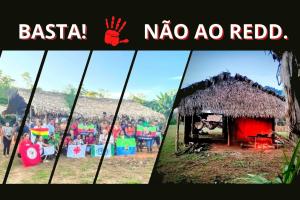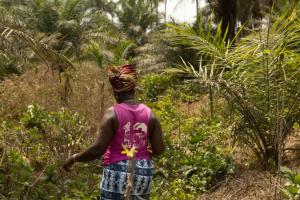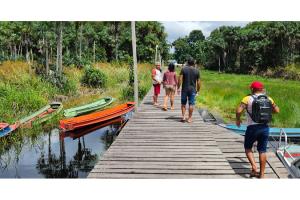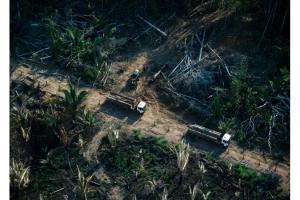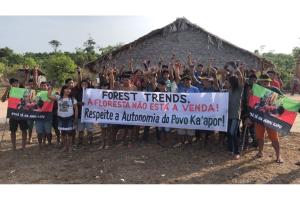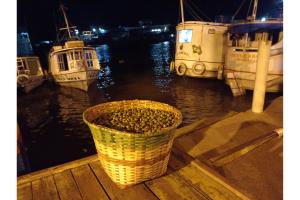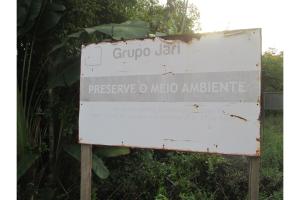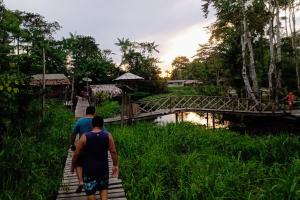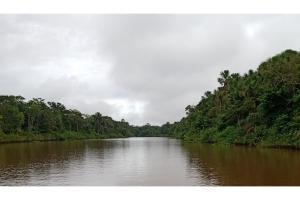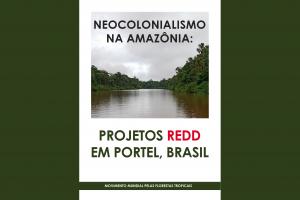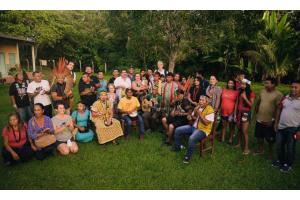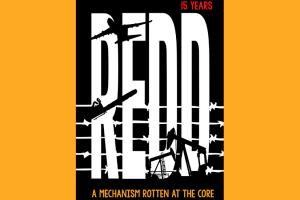Carbon offsetting and REDD
Reducing Emissions from Deforestation and Degradation (REDD+) has become the dominant international forest policy. Variations of REDD+ include Nature-Based Solutions and corporate pledges to achieve Zero Net Deforestation. In reality, though, deforestation continues, polluting companies use REDD+ offsets to avoid reducing their fossil fuel emissions, and zero-net deforestation pledges allow forests to be cleared in one area as long as an “equivalent” area is restored elsewhere.
Action alerts
30 July 2024
Indigenous, peasant, traditional and Afro-descendent peoples from the Amazon region and Central America call organizations and social movements all over the world to endorse this declaration rejecting carbon projects in their territories.
Bulletin articles
27 June 2024
Behind every tree plantation developed for carbon offsets, there are external agents seeking to profit from increased control over the land. And while they all have the same colonial approach, these plantations can vary widely: they can be large-scale monocultures or schemes with smallholder farmers; they can include exotic species or native species; and some of them may even exist on paper only.
Other information
27 June 2024
The podcast “Faroeste carbono” tells the story of how Carbonext, one of the largest carbon offset companies in Brazil, convinced quilombola communities in the state of Para in the Brazilian Amazon to sign a contract that restricts their autonomy and food production.
Other information
27 June 2024
An investigation exposed how carbon credits from three of the largest carbon offset projects in the Brazilian Amazon are linked to a criminal operation.
Bulletin articles
26 February 2024
The Ka'apor live in Alto Turiaçu, in the northwestern part of Maranhão state in Brazil. It is the largest indigenous territory of the Eastern Amazon and the largest portion of preserved rainforest in the region. Foreign companies have arrived there to propose REDD projects; this has caused conflict, and part of the community is rejecting these projects and organizing to resist.
Bulletin articles
19 December 2023
Carbon offsetting projects jeopardise small-scale farming, the felling of trees for subsistence, and other centuries-old practices of Indigenous Peoples and traditional communities in the Amazon region. Contracts promoted by companies undermine local care strategies and workers’ creativity, undervaluing or even denying them completely.
Bulletin articles
25 October 2023
WRM’s reply to Biofílica Ambipar’s “Clarification Note” about the article "REDD and the Green Economy exacerbate oppression and deforestation in Pará, Brazil", written by WRM and published in its Bulletin of July 2023.
Bulletin articles
22 July 2023
In the ‘green economy,’ the interests of corporations, governments and the conservation industry intersect. All of these entities, in one way or another, profit from the destruction of forests and the dispossession of communities. In Pará, there are not only increasing REDD projects, but the state governor is seeking to implement jurisdictional REDD throughout the territory.
Bulletin articles
16 January 2023
In line with certain aspects of a recent WRM study, we show how four REDD projects in the municipality of Portel, in the state of Pará in the Brazilian Amazon, contribute to perpetuating certain fantasies inherent to the idea of carbon trading through the REDD mechanism.
Publications
9 November 2022
Amid the flurry of news about investments in carbon markets, a new WRM study has taken a closer look at a REDD initiative underway in the municipality of Portel, in the state of Pará in the Brazilian Amazon. The case illustrates what is known as "carbon colonialism".
Publications
28 April 2022
This publication gathers eleven articles that reflect on fundamental and dangerous dimensions of Reducing Emissions from Deforestation and Forest Degradation (REDD), the dominant forest policy around the world since 2007.
